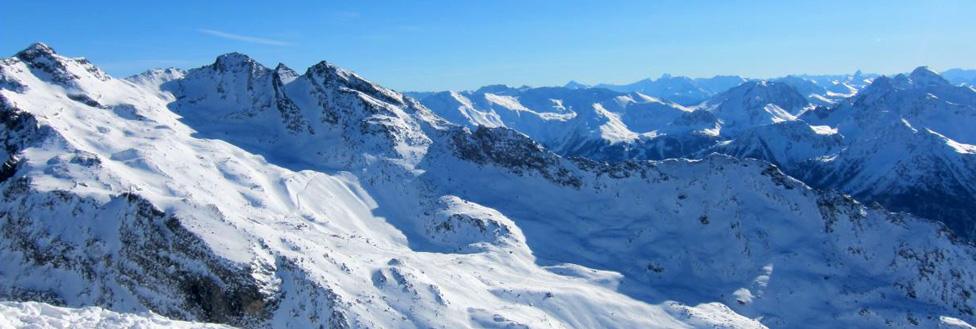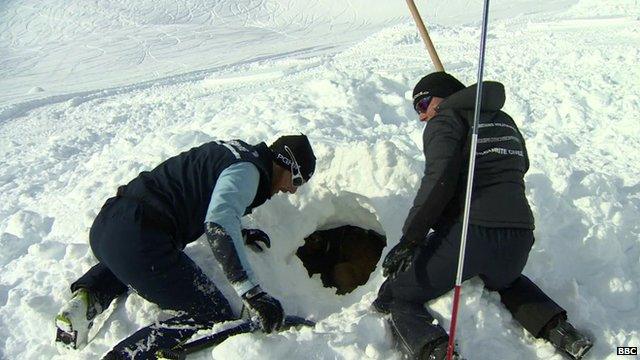Avalanche science: uncovering snow's deadly secrets
- Published

The Swiss Federal Snow and Avalanche Research Institute is dedicated to the study of the dangers of snow. With the Alps seeing a particularly deadly winter season of avalanches, the BBC went to the Swiss Alps to discover the latest technology that is helping make the mountains safer.
Listening for avalanches
Dr Alec Van Herwijnen has buried microphones under the deep snow in order to listen for avalanches. As he explains in this video, these sounds pinpoint exactly when avalanches happen, allowing him to work out the pattern of avalanche activity and to improve avalanche forecasting.
The weak layer
Avalanches can be triggered by a single thin weak layer in the snow pack. In this video Benjamin Reuter explains how to find this weak layer with the latest snow-probing technology. This method helps experts to work out which slopes are at risk from avalanches.
Snow X-rays
The scientists at the Davos institute actually make snow with a machine that is kept in a very chilly laboratory. Here, snow physicist Dr Martin Schneebeli explains how studying snow at the very fine scale is helping reveal the conditions under which avalanche-causing weak layers form.
Blasting the slopes
Explosions that deliberately trigger avalanches are used widely in ski resorts to clear the danger off the busy slopes.
Stephan Simioni is studying the precise effects of these explosions on the layers of snow. Here he reveals how his blasting experiments could help to work out the best places to detonate in order to make the mountains safer.
Filmed by Martin Colley
- Published27 January 2014
